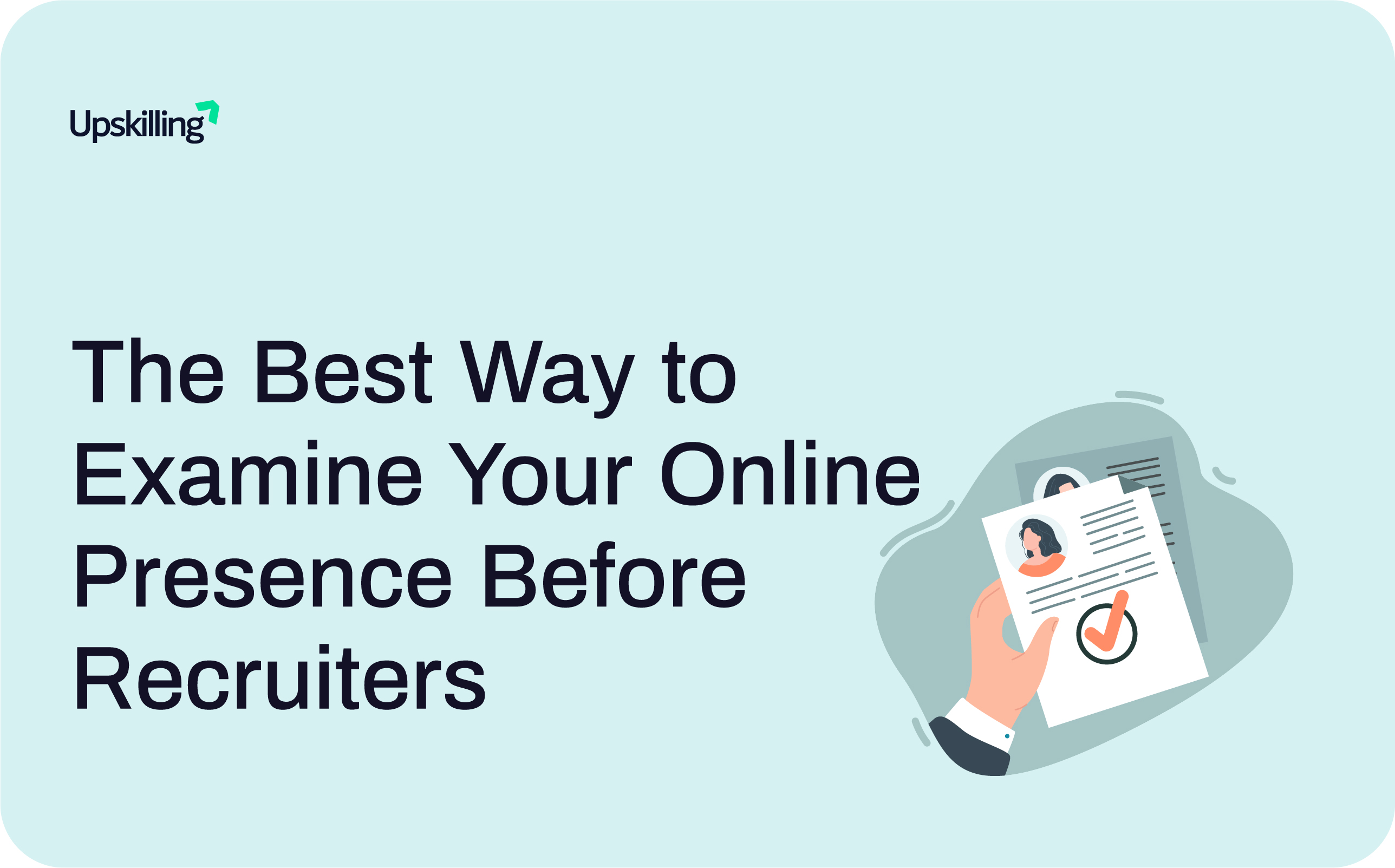The Best Way to Examine Your Online Presence Before Recruiters
Have you taken the time to review your online presence prior to sending out your resume? Reflect on this: Are you aware that one of the initial steps recruiters often take upon reviewing a resume is to assess your digital footprint? Have you considered what they might discover? Would you like a recruiter to examine your Twitter profile?
If your response is a firm "no," then it's a clear indication that it's necessary to enhance your online presence.
However, what if you don't maintain an online presence? In that case, you might assume there's no cause for concern, correct?
Incorrect.
Certain employers may opt not to conduct interviews with candidates if they cannot locate any online information about them. As a result, it becomes essential to provide them with relevant content – content that is of a professional nature. At the very minimum, establishing a LinkedIn profile is imperative, and you might also want to contemplate creating an online resume.
But before you begin, it's important to examine what information about you is available online. That's why we've created this very brief and highly useful guide.
In this article, you will learn:
How to tidy up your social media accounts and what shows up when people search for you on the internet, especially for recruiters.
How to use LinkedIn effectively to present yourself as a professional on the internet.
How to ensure that your online presence complements your regular resume.
Let’s get into it.
How to tidy up your social media accounts and what shows up when people search for you on the internet, especially for recruiters.
Imagine you're a tech-savvy individual with a strong online presence on various platforms like LinkedIn, Facebook, Twitter, Instagram, YouTube, and even your personal blog. But have you ever looked yourself up online?
Even if you're not active on the internet, it's important to know what information is out there about you. Search your name on different search engines like Google, Bing, and Yahoo. Keep in mind that Google's results might be personalized, so log out of your accounts when searching there.
You might find content that you're uncomfortable with. If it's highly personal or explicit, you can ask Google to remove it. However, what you find disturbing might differ from what Google thinks is inappropriate.
For instance, Google considers things like private info and explicit images as serious. But you might be concerned about embarrassing or unprofessional content. Remember to check Google Images and reach out to website owners if you want to delete certain content.
Once you've checked Google, do the same with other search engines. If you find your work-related blunders going viral, it might be wise to delete your online presence.
For those who didn't find troubling content, review your social media profiles. Set your LinkedIn to public and see what's visible on Facebook and Twitter. Delete posts that could be seen as offensive.
Recruiters are mainly interested in content that supports your resume, like a professional portfolio. They're not looking to reject you based on your online presence, but to back up your qualifications.
How to use LinkedIn effectively to present yourself as a professional on the internet.
Whether online or not, having a LinkedIn profile is crucial. Why? Because 87% of recruiters use LinkedIn to check candidates. What does this mean? Almost every time you apply, recruiters will peek at your LinkedIn. So, it's smart to have one. Even better if it matches your paper resume.
Already on LinkedIn? optimize up your profile then, add extras – things missed on your resume, like hobbies. LinkedIn is for showing personality, say 87% of hiring managers. Lastly, personalize your URL and link to an online resume. Why? Custom links help recruiters remember. An online resume link makes their job easier. Click the pencil by your LinkedIn link to personalize the URL. Please edit your link so that your name is the only thing that appears.
How to ensure that your online presence complements your regular resume.
Start by putting a link to your portfolio or website in the contact part of your resume. After that, connect your online resume by using your portfolio, website, or LinkedIn profile. This way, your professional online life is all connected.
So, if a recruiter finds your website or portfolio, they can also see your resume. And if they begin with your resume, they can go to your website or portfolio.
No matter your job, the least you can do is leave a trace online. That's why it's important to check your online presence – so you can put links where recruiters can find them.
Ultimately, all recruiters want is information that backs up what you've written on your paper resume.
Keep these things in mind:
Just having a great resume isn't sufficient anymore. Nowadays, you also need to be good online. The simplest and most effective way to manage this is by examining your online presence. Then, make your LinkedIn profile attractive to recruiters.
Lastly, think about using a digital resume instead of a paper one. In essence, the main idea is to make your online image shine.
